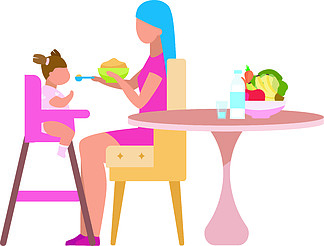From around six months old, babies will gradually transition to solid foods, and rice cereal is often the first attempt in this process. Not only is it nutritionally balanced, but it also has a texture that is easily accepted by babies. However, as the baby grows older, the variety of foods they can try increases, and rice cereal may be replaced by other foods on the menu. So, until when should infant rice cereal be fed?
Introducing rice cereal as a complementary food aims to provide a smooth transition, bridging the gap between breastfeeding or formula feeding and regular diet, serving a supplementary and promoting role. For babies starting on solid foods, around six months old, rice cereal is often seen as the preferred choice. However, two to three months later, as babies’ swallowing and chewing skills improve, they may show disinterest in plain rice cereal. At this point, introducing a variety of semi-solid or semi-liquid foods can be considered. Of course, if the baby still accepts rice cereal, other ingredients can be mixed in to enrich the taste and ensure comprehensive nutrition. Eventually, when the baby can successfully consume soft noodles and other starch-based foods, the feeding of rice cereal can gradually be reduced until stopped.
As for promoting baby’s chewing ability through diet, the following stages can be followed:
4 to 6 months: Babies are in the early stages of teething, and breast milk or formula are still the main sources of food. Around 6 months, trying adding rice cereal and various fruit purees can enrich their nutritional intake.
6 to 7 months: At this stage, babies coordinate “chewing” with their tongue and gums, their gums harden, and drooling increases. Providing finger biscuits, teething biscuits, and other slightly hard foods can help with teething and alleviate discomfort.
7 to 8 months: Some babies may have grown their first teeth and need to enhance their oral chewing practice. It is suitable to introduce semi-solid foods like egg custard, fine noodles, while parents should demonstrate chewing actions and guide babies in learning.
8 to 12 months: Babies with more teeth can try a more diverse range of foods like wonton, tomatoes, apple slices to meet their rapidly growing nutritional needs.
12 months and above: Babies gradually can handle solid foods, as long as they are not too hard, most foods can become their daily dietary choices.
Through the above gradual adjustments, not only can it help babies adapt to and enjoy a variety of foods, but it can also effectively promote the development of their oral and chewing abilities.


